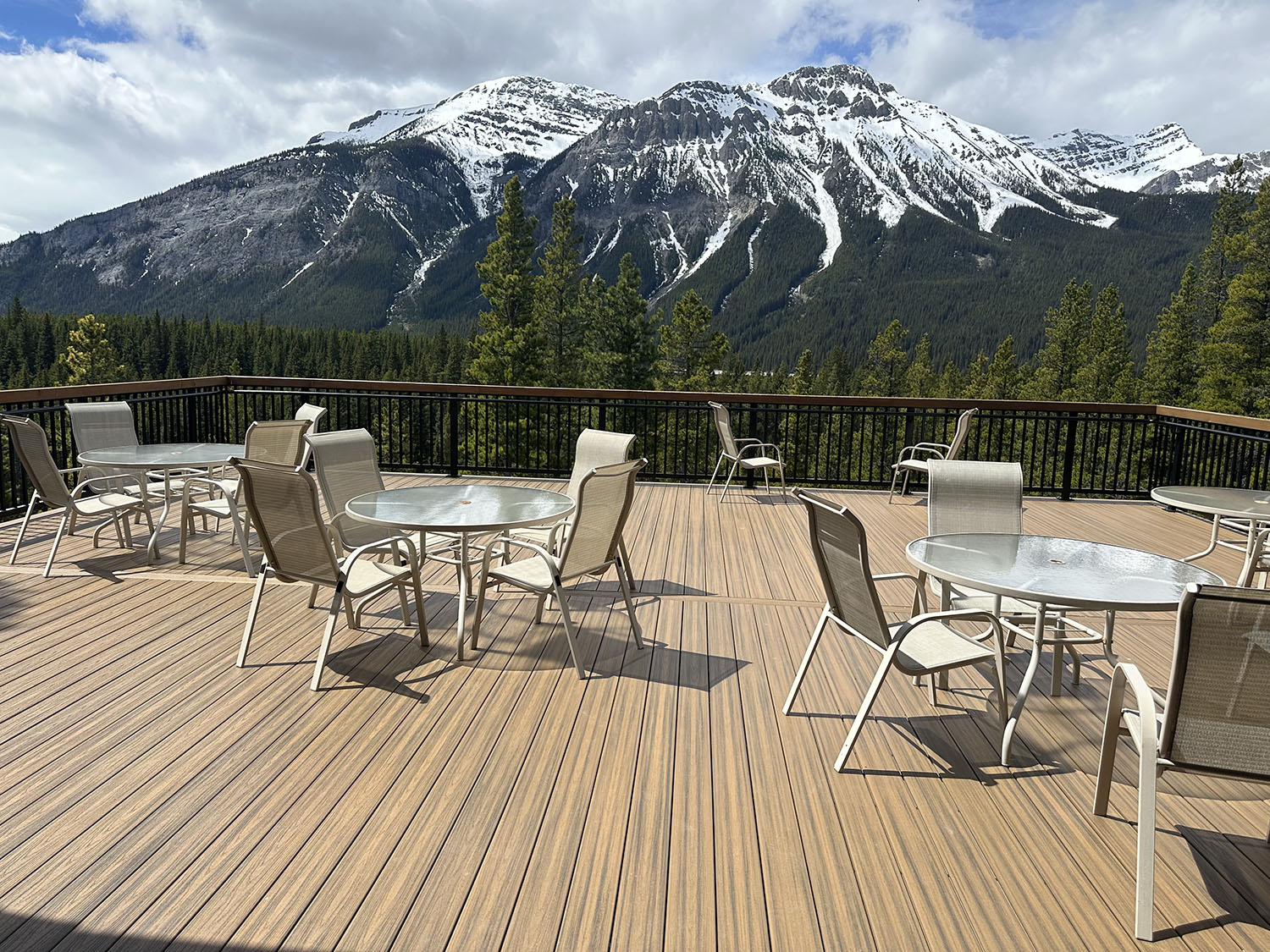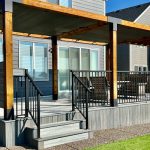The Lifetime Cost Of Composite Decks
Nothing beats the feeling of stepping onto a well-built deck out in your yard on a hot summer day, with your barbecue at the ready and the sun shining down. A properly constructed and maintained deck can last for decades, becoming a cherished space for creating countless memories with family and friends.
But before those memories can be made, the deck must first be built. With a surplus of wood types and materials available, figuring out the best cost-to-quality ratio can be quite daunting. Options range from a few dollars per square foot for wood decks to over $20+ for composite materials, which are made from a blend of wood fibres, plastic, and other fillers. The choice you make can significantly impact the final cost of your new deck.
Although the initial installation cost of composite decks is higher than that of wood, the advantage lies in the significantly lower maintenance costs over the years. This difference when it comes to building a composite deck is primarily due to three key factors.
Why Composite Decks Cost Less Longterm
1) Less Physical Maintenance Requirements
Physical maintenance advantages must be factored into the composite deck cost. Wooden decks require regular maintenance to prevent rotting, warping, and splintering. This involves deep cleaning, sanding, and staining or painting every few years. Between labour and supplies, the costs can run over a thousand dollars each time. Over the lifespan of a wooden deck, these costs quickly add up, often exceeding what you would have initially spent on a composite deck.
By contrast, composite decks require minimal maintenance, needing only a few cleanings a year to maintain their pristine condition. This significant reduction in upkeep not only saves time but also money, allowing homeowners to enjoy their outdoor space without the constant burden of maintenance.
2) Durability and Longevity
Another critical factor is the durability and longevity of the decking material. Composite boards are designed to withstand stains, precipitation, and temperature fluctuations far better than regular wood. They resist rotting and splintering, which eliminates many of the issues associated with wooden decks, especially around nails and edges. Additionally, composite materials offer superior resistance to insect damage, ensuring a longer lifespan without costly repairs or replacements.
Composite decking is engineered to endure the elements, including heavy rain, snow, and extreme heat. Unlike wood, which can warp, crack, or split under such conditions, composite boards maintain their integrity and appearance, allowing homeowners to enjoy their deck for many years with minimal maintenance. The key benefits of composite decks include:
-
- Weather Resistance: Withstands extreme weather conditions without warping or cracking.
- Insect Resistance: Resistant to termites, carpenter ants, and other wood-boring insects.
- Impact Resistance: Less prone to dents, scratches, and other damage from everyday use.
- Extended Lifespan: Typically, lasts 25-30 years, often with extensive warranties.
3) UV Resistance
When considering composite deck pricing, it’s essential to keep in mind the substantial benefit of UV resistance. Unlike wood, composite boards retain their colour and appearance without fading or discolouration, even after prolonged exposure to sunlight. This UV resistance means composite decks maintain their aesthetic appeal long after regular wood has lost its sheen. With an average lifespan of 25-30 years (and potentially longer), composite decks offer a considerable advantage over typical wood, which might only last half as long.
Composite materials are engineered to include UV inhibitors that protect the boards from the damaging effects of the sun’s rays. This technology not only preserves the vibrant colour of the deck but also helps to prevent surface degradation that can occur with prolonged UV exposure. Homeowners can enjoy a deck that looks as good as new for many years without the need for frequent staining or painting, which is often necessary with wood decks to maintain their appearance.
Long-Term Savings: The Financial Advantage of Composite Decks
While the initial cost of a composite deck is higher, the long-term savings are substantial. Over 20 years, the lower maintenance costs and increased longevity of composite decks make them a more economical choice.
Calculating the True Cost
Consider the experiences of Sarah and John. Sarah chose a wooden deck, which required around $500 annually for cleaning supplies, sealant, and occasional repairs. Over ten years, she spent an additional $5,000 on maintenance. In contrast, John opted for a composite deck, spending only about $100 yearly on basic cleaning, totalling $1,000 over the same period.
Let’s revisit Sarah and John after 20 years. Sarah’s wooden deck required several repairs and replacements, costing her an additional $10,000. Her total investment, including maintenance, reached $15,000. John’s composite deck, with its minimal maintenance needs and no significant repairs, cost him a total of $9,000. Despite his higher initial investment, John saved $6,000 over the lifespan of his deck.
Environmental Impact
One last critical factor to consider is the environmental impact. Composite decking is made from recycled materials, making it an eco-friendly option. The use of recycled wood fibres and plastics reduces waste and the need for virgin materials, supporting sustainable practices and minimizing the ecological footprint of your outdoor space.
Additionally, the long lifespan of composite decks means fewer resources are used over time compared to the frequent replacements required for wooden decks. This durability reduces waste and contributes to resource conservation, making composite decking a sustainable choice that aligns with broader environmental goals, such as reducing deforestation and conserving natural habitats.

Making the Smart Choice
When considering the lifetime cost of a deck, it’s clear that composite decks offer significant advantages. Despite a higher initial investment, the long-term savings on maintenance and replacement, as well as the durability and environmental benefits, make composite decks a wise choice for homeowners looking for a sustainable and cost-effective solution.
The reduced need for physical maintenance, enhanced durability, and superior UV resistance make composite decks a smart investment. Over the lifespan of the deck, homeowners can expect significant savings in both time and money, all while enjoying a beautiful, low-maintenance outdoor space. When planning your next deck project, consider the lifetime cost and benefits of composite decking to make a decision that pays off in the long run.
Ready to transform your outdoor living space? Whether you’re interested in the longevity and low maintenance of composite decking or the classic appeal of a traditional wood deck, our team of experts at Maritime West Construction is here to help. Contact us today to start planning your perfect deck and make your Calgary home even more spectacular.





